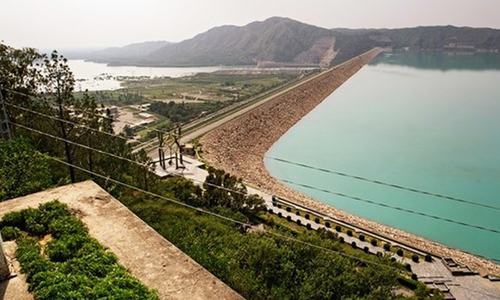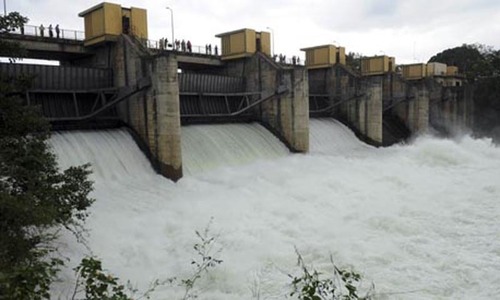ISLAMABAD: Amid drought-like conditions in the country, the Council of Common Interests (CCI) on Sunday constituted a committed headed by the attorney general to examine whether the Indus River System Authority (Irsa) is providing irrigation water to the provinces in accordance with the 1991 water apportionment accord.
The decision was taken at a meeting of the CCI presided over by Prime Minister Shahid Khaqan Abbasi and attended by Sindh Chief Minister Syed Murad Ali Shah and Balochistan Chief Minister Mir Abdul Quddus Bizenjo, provincial chief secretaries and senior officials.
The Sindh chief minister complained that his province was not being given its due water share set in the 1991 water accord and because of this it was facing a drought-like condition and its farmers were suffering a lot.
Committee will examine whether Irsa is providing irrigation water to provinces in accordance with 1991 accord
Water resources division’s joint secretary Mehr Ali Shah made detailed presentation on availability of water in the country and its distribution among the provinces as per the 1991 accord.
The Balochistan government complained that its water share approved by Irsa was not being released by Sindh through inter-provincial canals.
Murad Ali Shah highlighted the history of water distribution, the water accord and changes made in the distribution mechanism through ministerial meetings that affectively changed the provincial shares set in the accord to the severe detriment of lower riparian provinces.
Punjab’s representatives regretted that the entire nation was suffering from the consequence of not building a dam over the past five decades while water availability had been coming down and provincial irrigation requirements going up. As a result, they said, all stakeholders were getting low water supplies, particularly this season when rainfall was lower than normal and river flows remained subdued.
The Sindh chief minister argued that the accord did not mention that the provinces would not be given their water shares in case no dam was built. The accord also did not allow introduction of a so-called three-tier water distribution system that compromised Sindh’s interests in violation of para-2 of the accord that committed higher share, he said.
The stakeholders reminded each other of various legal opinions on allocation of shares on the basis of para-2, para-14 or three-tier distribution mechanism.
Since the issues were of legal and technical nature, the meeting decided to constitute a committee under the attorney general and comprising one representative each from the provinces to look into them and submit its recommendations at the next meeting.
Irsa reported that the country was facing about 51 per cent water shortage at rim stations which ultimately increased to 65-70pc at the canal head after calculating conveyance losses.
Published in Dawn, May 28th, 2018














































